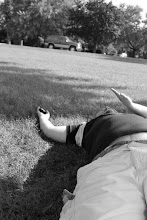
I think we all knew a second Rebecca Black single was coming.
And just as surely, I'm sure we all had our own expectations. I had only two wishes for what Ms. Black would churn out with song number two...only two possible scenarios I wanted to see.
Scenario #1 was that the song would be good. And I mean really good. I wanted both pop cultural critics and classical musical scholars to be in full agreement that it was one of the finest original compositions a human being has ever come up with. Children 500 years in the future would play "My Moment" at piano recitals instead of Beethoven's Fifth. No one would be able to hear it without immediately bursting into tears, having become suddenly aware of their own humanity in an unprecedented way.
Why did I want this? Why not. At some point, something has to come along that will change the course of music forever and it might as well come from the least likeliest source we're aware of. I am willing to concede, however, that this was not the most realistic desire on my part.
So I came up with Scenario #2. I wanted Rebecca to show us in some way, any way, that she was now in on the joke. The general gist of "My Moment" (I swear to God I originally wrote "My Struggle" on the first two references of the song) would be "Haha, yeah I get it. Friday was pretty bad. Now here's another pretty bad song that you kids with your tight-ass jeans can dance to ironically."
In hindsight, I guess maybe Scenario #1 would have been more likely.
There is no self-awareness in "My Moment," nor is there much quality to speak of. But it does have a quality that makes me want to revise my initial expectations. It's optimistic.
Rebecca Black released one of the worst songs of the Internet era. She then spent about half a year being told that she had released one of the worst songs of the Internet era. She was humiliated through every possible form of media, went through a protracted legal battle for her earnings off the song and even received death threats (although it should be noted that death threats may be the most common forms of internet censure).
So what does she do? She releases a song celebrating her "moment." We as a society spent six months raping this 13-year-old girl's soul and she essentially says "Thanks, guys! It's awesome to have y'all as fans."
I can't tell if this is courageous or just youthful naivety but I do know that, whatever it is, I plan on encouraging it. It is a rare feat to stare directly into the black heart of the Internet and still come away with a cheerful disposition. It is as impressive as Jesus facing temptation in the desert and still going to the cross. But damn it all if Rebecca doesn't pull it off.
Rebecca Black began her "career" as a social experiment of sorts. Is it possible to gain fame for something objectively awful? Having proven beyond a shadow of a doubt that the answer is "yes," Rebecca deserves a continuation on this social experiment. I propose that we see if its possible to sustain someone's career in a field in which they clearly have no talent. We all know the answer is "yes" thanks to this:
The only question is if our appreciation for this girl's tenacity in following her dreams will equal our fascination with drunken fist-bumping lunatics.
Well, it was fun while it lasted, Rebecca.

